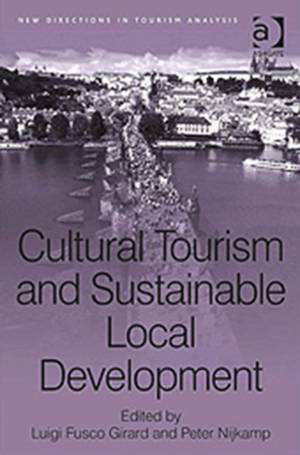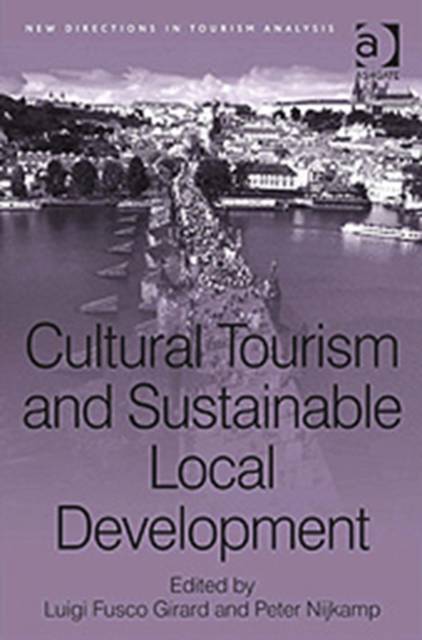
- Afhalen na 1 uur in een winkel met voorraad
- Gratis thuislevering in België vanaf € 30
- Ruim aanbod met 7 miljoen producten
- Afhalen na 1 uur in een winkel met voorraad
- Gratis thuislevering in België vanaf € 30
- Ruim aanbod met 7 miljoen producten
Zoeken
Cultural Tourism and Sustainable Local Development
€ 202,95
+ 405 punten
Omschrijving
With the exponential rise in leisure mobility, tourism has increasingly become of great economic significance. Cultural heritage, such as museums, churches, historical landscapes, urban parks, and exhibitions attract many visitors and countries, regions and cities which house such historic-cultural amenities have seen increasingly large waves of tourists. While an avalanche of tourists has a positive impact on the local economy, such modern mass tourism also brings about negative externalities such as congestion, decline in quality of life, low access to cultural amenities and loss of local identity; to the extent that the sustainability conditions of a locality might be endangered. This tourism dilemma is particularly pronounced in cities with a rich cultural past, such as Venice, Naples and Amsterdam. Bringing together an interdisciplinary team of leading scholars from North America and Europe, this book examines the interface of local cultural resources and modern mass tourism from a sustainability perspective. It puts forward innovative methodologies and best case practice for future cultural conservation policies.
Specificaties
Betrokkenen
- Uitgeverij:
Inhoud
- Aantal bladzijden:
- 344
- Taal:
- Engels
- Reeks:
Eigenschappen
- Productcode (EAN):
- 9780754673910
- Verschijningsdatum:
- 28/02/2009
- Uitvoering:
- Hardcover
- Formaat:
- Genaaid
- Afmetingen:
- 156 mm x 233 mm
- Gewicht:
- 452 g

Alleen bij Standaard Boekhandel
+ 405 punten op je klantenkaart van Standaard Boekhandel
Beoordelingen
We publiceren alleen reviews die voldoen aan de voorwaarden voor reviews. Bekijk onze voorwaarden voor reviews.










